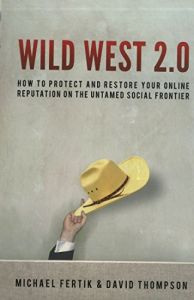Join getAbstract to access the summary!

Join getAbstract to access the summary!
Michael Fertik and David Thompson
Wild West 2.0
How to Protect and Restore Your Reputation on the Untamed Social Frontier
AMACOM, 2010
What's inside?
Protecting your online reputation is hard so you have to be aggressive. Just mounting a reasonable defense is not enough.
Recommendation
Although the Internet is the greatest information resource and connectivity medium the world has ever seen, it is still remarkably wild and woolly. Millions of shady characters inhabit it, lurking to steal your shirt and sell it back to you at twice the original price. Some online con artists set up phony rating sites where they publish scathing reviews of companies’ products and then extort heavy fees from those firms to remove the negative reviews. Malevolent liars use the Internet anonymously to ruin people’s reputations or corporations’ standings with blog attacks and negative postings. Reputation management consultants Michael Fertik and David Thompson examine these fraudulent activities and more in this disturbing but timely book, and they outline steps you can take to protect your online reputation or the good name of your business. Though the book is somewhat repetitive, Fertik and Thompson have created a solid, useful manual on safeguarding your good name online. getAbstract recommends it to anyone who has to fight back against online slurs, and to anyone who has a good reputation and wants to keep it.
Summary
About the Authors
Michael Fertik is founder and CEO of a reputation management consultancy where David Thompson is general counsel. Fertik also serves on the advisory board of The Internet Keep Safe Coalition, which protects the safety of children online.
















Comment on this summary